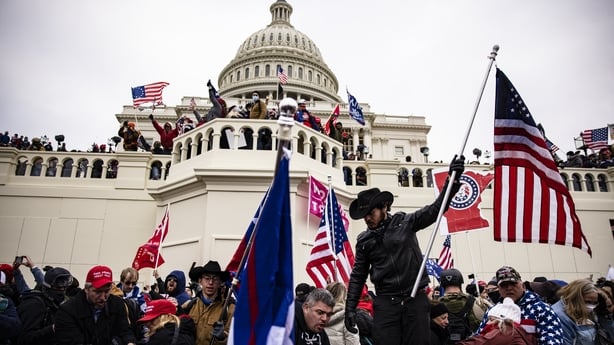A US judge has ruled that former president Donald Trump "more likely than not" committed a felony by trying to pressure his then vice president to obstruct Congress and overturn his election defeat on 6 January 2021.
The assertion was in a ruling that found the House of Representatives committee probing the deadly attack on the US Capitol has a right to see emails written to Mr Trump by one of his then-lawyers, John Eastman.
The judge said that Mr Trump's plan to overturn his defeat amounted to a "coup".
"The Court finds it more likely than not that President Trump corruptly attempted to obstruct the Joint Session of Congress on January 6, 2021," US District Judge David Carter in Los Angeles said in a written decision.
Representatives of Mr Trump and Los Angeles-based Eastman did not immediately respond to requests for comment.
Judge Carter has no power to bring criminal charges against Mr Trump. That decision would need to be made by US Attorney General Merrick Garland, for violations of federal law.

The Capitol riot occurred as then-vice president Mike Pence and members of both chambers of Congress were meeting to certify Democrat Joe Biden's November 2020 election win.
"Dr Eastman and President Trump launched a campaign to overturn a democratic election, an action unprecedented in American history," Judge Carter wrote. "Their campaign was not confined to the ivory tower - it was a coup in search of a legal theory."
The Democratic-led committee was formed to investigate last year's Capitol attack by thousands of Trump supporters, more than 750 of whom have been charged criminally.
The committee said earlier this month it believed Mr Trump may have committed multiple felonies.
Before the mob stormed the Capitol, Mr Trump gave a fiery speech in which he falsely claimed his election defeat was the result of widespread fraud, an assertion rejected by multiple courts, state election officials and members of his own administration.

